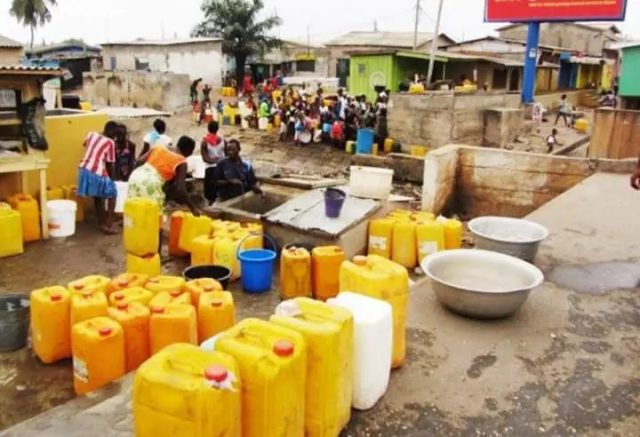…due to effects of galamsey
The Ghana Water Company Limited has said it is facing challenges in its business of supplying potable water to residents of Sekondi-Takoradi Metropolis of the Western Region due to illegal mining.
The challenges, the company explains, arise from inadequate freshwater inflows into the Pra basin – which is the source of raw water for the Daboase Water Treatment Plant, the biggest plant in the region. Compounding the current problem at Daboase are the activities of illegal miners upstream of the River Pra, causing severe siltation at the plant’s intake.
Similarly, the Anankware River – which supplies raw water to the Inchaban Water Treatment Plant, is equally facing its own freshwater inflow difficulties due to high presence of pollutants.
It is estimated that over 60 percent of the country’s water-bodies are polluted, with many in critical condition largely due to illegal mining, also known as galamsey, and other human activities.
A statement issued and signed by Nana Yaw Barima-Barnie, Communications Manager of Ghana Water Company, said the high silt deposits have drastically reduced the volume of raw water available for abstraction.
Also, the statement said the dry season currently being experienced has also exacerbated problems of raw water unavailability.
“The result of these developments is that the company is not able to produce enough water for residents, thus worsening the already bad supply situation in the metropolis,” the statement explained.
In response to the crisis, the statement said the company has reviewed its water demand management programme to bring equity in the water distribution exercise.
“Management of the company recognises and shares in the pain of consumers, and are now doing everything they can to ameliorate their suffering – including dredging the intake of Daboase Treatment Plant, which is currently ongoing,” the statement added.
In a follow-up interview with the B&FT, Mr. Barima-Barnie said increase in population and the resultant increase in demand for water in the metropolis is putting a lot of stress on the water supply system.
“Hopefully, when the rains set in we will be able to increase our raw water abstraction and be able to meet the demand better than we are doing currently,” he added.
He urged customers and consumers alike to use water more judiciously during this period, and said residents should stop watering lawns with treated water at this critical period.
He also appealed for the public to repair all leaking taps and water closets (WCs), and endeavour to cultivate the habit of storing water instead of depending on water from flowing taps at all times.
“I would encourage all to consider getting a water storage facility in their homes,” he concluded.
While large-scale mining companies obtain permits to extract minerals, smaller groups and individuals also engage in small-scale artisanal mining.
Most of these entities do not possess the requisite permits to operate, which makes the artisanal mining activities illegal; and they often go about their activities in a manner that is not safe to the environment and humans.
For instance, the use of heavy metals by illegal miners not only leads to contamination of water sources but also causes water-treatment plants to shut down.


















